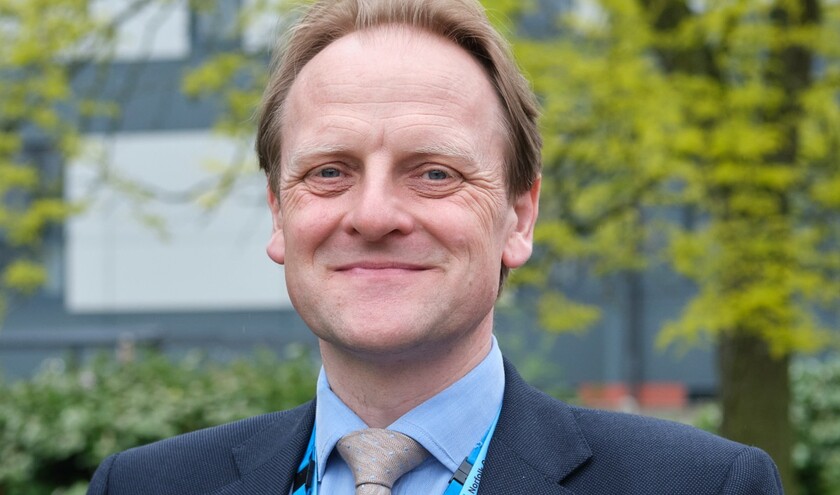Collaboration between the NCH&C and CCS has developed naturally over time with the East of England neighbours overlapping geographically.
‘That has developed over the years with CCS providing the lion's share of children's services and sexual health services in Norfolk,' Winn explained.
‘There's been an element of us working in the same county and within the same ICB footprint.'
The opportunity to come together as a group came when, following him finishing a role as national director for community health services at NHS England, Winn was asked to lead NCH&C as chief executive in November 2023 in addition to his chief executive role at CCS.
When each of their medical directors then stood down, both trusts took the decision to recruit some who could work across both organisations.
With both trusts relatively small with a budget each of around £170m the boards then took the decision that it would make sense to come together as a group.
‘There was quite a lot of alignment there,' Winn added.
‘We were clearly operating in the same space within Norfolk even though CCS also operates in Cambridgeshire and Peterborough and in Bedfordshire in Luton and Milton Keynes.'
Winn said the plans to come together will culminate with a full merger in April 2026.
While mergers in the NHS have been traditionally prompted by one organisation failing and the other seeking to mount a rescue, Winn said this partnership had been formed by ‘mutually agreeable' positions.
‘We wanted to get to a single board and single executive leadership as soon as possible because unless you have a guiding mind and clear accountability and a single view on what you want for both organisations you can have real problems in doing this properly and doing it culturally well,' Winn noted.
Forming a single board has meant some executive members having to step down with members also having to compete for places at both trusts.
The single group was formed on 1 April 2025 with its strategic case to form a merger approved and the full case aiming to be considered by NHS England by the winter.
Winn said the move to form a single group predated the recent corporate cost-cutting announcements by the DHSC.
‘Part of our rationale was to get our overhead costs as a percentage of overall costs down from 14-15% to 12-13% over a two- to three-year period,' the chief executive said.
Winn said costs would be cut through removing duplication and through natural workforce churn.
He said restructuring may be required at some point, adding the group was ‘in the early days of working that out'.
While noting the NHS corporate restructure was part of what the group was doing, Winn said the group would ‘go further in terms of having a more efficient organisation'.
Winn said the group was seeking to gain benefits of operating with its current three ICBs and 12 local authorities in a different way.
The chief executive said the group had already introduced a chief information officer at board level which was something neither of the organisations individually could afford.
‘That's brought new leadership, new focus and new capability around the data and digital world,' he noted.
‘We are expecting to be doing more of those things to be more effective as joint operations and obviously will have a smaller workforce as a result of coming together.'
Winn said the size of the group's central support services workforce would come down over a two- to three-year period adding clinical and professional services staff would be ‘insulated' from cuts.
‘It would be very wrong to be focusing on reducing those staff because that's what we're here to do,' he stressed.
While not going through any formal redundancy process the group, as other providers currently are being asked to do, has recently launched its mutually agreeable resignation scheme.
Its reorganisation comes at a time of great change in the wider NHS with ICBs forming clusters as part of efforts to reduce costs by 50%.
Winn said the group was actively talking to its ICB partners – Bedfordshire, Luton and Milton Keynes, Cambridgeshire and Peterborough, and Norfolk and Waveney.
‘We are having conversations about how we design support if ICB staff are no longer in a particular job or function in areas that are very much akin to what community health services do – such as children safeguarding work, multi-agency safeguarding hubs and SEND work,' he said.
‘What would it take for community providers such as ourselves to actually take a leadership role on behalf of others if the ICBs aren't going to do that work?
‘How do we then also design changes in pathways like discharge or admission avoidance and caring for people at home with providers collaborating rather than the ICBs holding the ring or as happens sometimes arbitrating or refereeing between organisations.
‘That's what I think is really important. It's what Sir Jim Mackey is asking us all to do to get our house in order and move back to a rules based approach where we are clear about our outcomes, cost and who pays for what activity.
‘I think those are the right things and community health organisations are really important in that space.'
Winn identified CHC as one area where more detail was required going forward.
‘Continuing healthcare has an important role around the end of life,' he noted. ‘It's an important funding source for people who are living with co-morbidities and frailty and it's important for children with complex needs and people with learning disabilities and complex health issues.
‘Working out how different providers work at the interface with the NHS on CHC assessment and review but also on the provision of great care is quite important and an exciting prospect to get right in a different way.
‘It's large NHS expenditure but as with all this change it gives us the opportunity to say there is a different way of doing this and can we align how things operate rather than being done by a commissioning organisation in its own microcosm?'
With NHS England abolition having been announced there's much debate about how to reorganise without distracting from frontline services.
Winn said it was ‘critical' not to lose sight of the group's core purpose of providing outstanding care to local residents in neighbourhoods during its alignment process.
‘We're not doing this just to save money,' he said. ‘We're doing this to use the public pound to invest in frontline care.'
If you would like to appear in The Big Interview email Lee Peart at l.peart@hgluk.com



